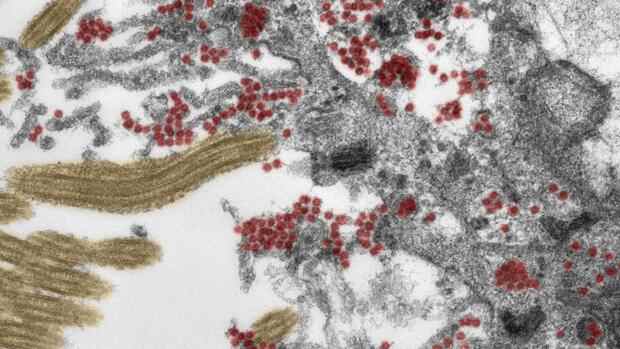A large number of intact SARS-CoV-2 particles (red) are found both inside the cell and on the cell processes, the cilia are yellow.
(Photo: Michael Laue / RKI & Carsten Dittmayer / Charité)
Berlin Anyone who is infected with the Sars-Cov-2 coronavirus can still have complaints for a long time after recovering from the illness. Typical are concentration and memory problems, extreme tiredness, dizziness, circulatory problems, shortness of breath and “brain fog”, which means “foggy brain”. Not only patients with a severe course of the disease who were treated in the intensive care unit, but also patients who had a mild to moderate course, can be affected.
Researchers around the world are trying to find out how these secondary symptoms come about – including whether the virus penetrates into the brain and causes damage there, or whether it is the body’s own immune system that is misdirected due to the virus infection and causes inflammation in the brain?
Current research supports several theses as to how a Sars-Cov-2 infection can damage the brain. An overview:
1. Via the olfactory mucous membrane into the brain
Read on now
Get access to this and every other article in the
Web and in our app for 4 weeks free of charge.
Continue
Read on now
Get access to this and every other article in the
Web and in our app for 4 weeks free of charge.
Continue
